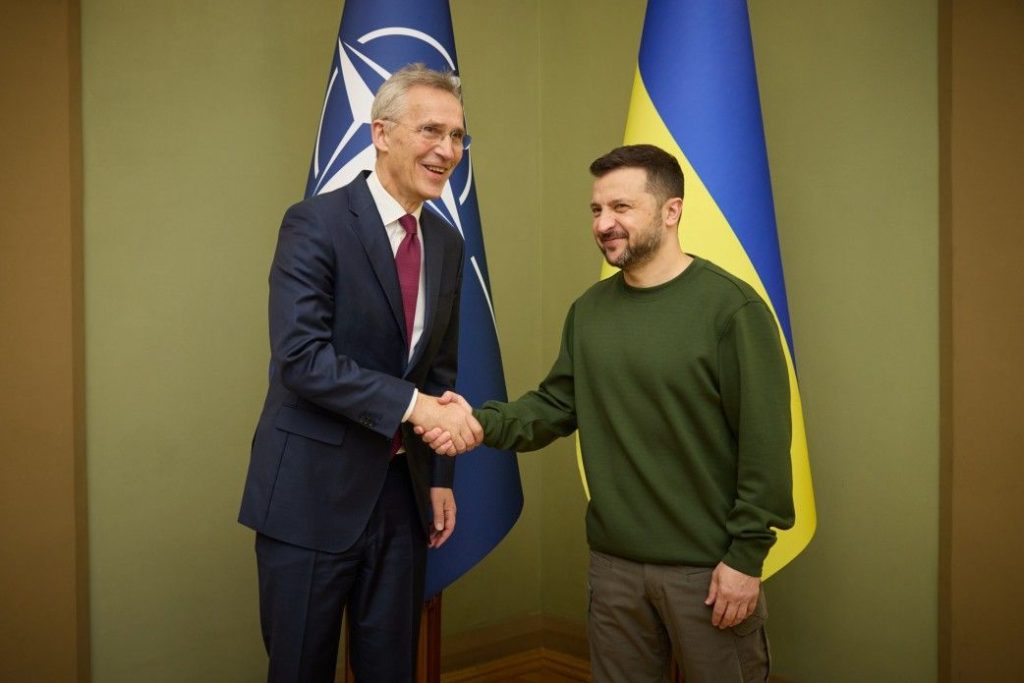Some NATO member states are considering sending military instructors or contractors to Ukraine to train Ukrainian troops and assist with equipment repairs. Ukraine has requested help in training 150,000 troops closer to the front lines, but the U.S. appears hesitant due to concerns about potential attacks on instructors triggering NATO’s collective defense clause. Some officials have suggested continuing training in Germany and Poland, but this poses logistical challenges in transporting a large number of troops. NATO countries like Britain, Germany, and France are mulling over deploying defense contractors to Ukraine, while the White House is reviewing its ban on US defense contractors operating there. The debate was initiated by French President Emmanuel Macron’s comments in February, where he considered the possibility of sending troops to Ukraine if requested, although he noted that conditions for such action did not currently exist.
Despite discussions within some NATO member states about potential military assistance to Ukraine, the U.S. has shown hesitance in directly sending troops or contractors due to concerns about potential attacks and triggering NATO’s collective defense clause. The logistical challenges of training a large number of Ukrainian troops closer to the front lines have also raised questions about the feasibility of such operations. Instead, countries like Britain, Germany, and France are considering deploying defense contractors to support Ukrainian forces. The White House is also reviewing its ban on US defense contractors operating in Ukraine, indicating a potential shift in policy regarding military assistance to the country.
The debate surrounding NATO troops in Ukraine was sparked by French President Emmanuel Macron’s comments in February, where he discussed the possibility of sending troops to Ukraine in the event of a Russian breakthrough and a formal request from Ukraine. Macron clarified that the current conditions did not necessitate such action, but the discussion has opened up the conversation about potential military assistance to Ukraine. While the U.S. is hesitant about direct military involvement, the consideration of deploying defense contractors suggests a different approach to supporting Ukrainian forces. The review of the ban on US defense contractors operating in Ukraine indicates a willingness to reconsider existing policies and potentially provide additional support to Ukrainian troops.
The issue of military assistance to Ukraine is a complex one, with various NATO member states weighing the risks and challenges involved in deploying troops or contractors to the country. The hesitance of the U.S. in directly sending military personnel highlights the sensitivity of the situation and the potential consequences of such actions. However, the consideration of defense contractors as a way to support Ukrainian forces indicates a possible alternative approach that could provide much-needed assistance without directly involving NATO troops. The ongoing discussions within NATO about military assistance to Ukraine reflect the broader geopolitical dynamics at play in the region and the importance of supporting Ukraine in its defense against Russian aggression.
Overall, the debate surrounding potential military assistance to Ukraine highlights the complexities and challenges involved in providing support to a country facing external threats. The differing approaches of NATO member states, with some considering direct military involvement and others exploring alternative options like defense contractors, underscore the need for careful consideration and coordination. As the discussions continue, it will be crucial for NATO countries to carefully assess the risks and benefits of various forms of military assistance to Ukraine and work together to ensure the security and stability of the region. By supporting independent journalism in Ukraine, individuals can stay informed about these developments and contribute to the ongoing dialogue about how best to assist Ukraine in its defense efforts.


